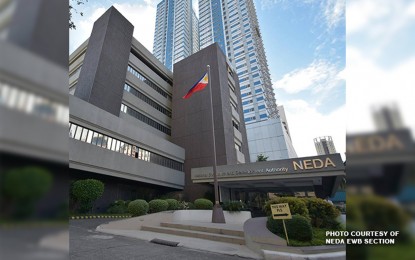
MANILA – Ensuring price stability through greater use of technology and supporting the agriculture value chain is necessary to help build consumer confidence and support the gradual recovery of the domestic economy, the National Economic and Development Authority (NEDA) said.
The Philippine Statistics Authority (PSA) reported Tuesday that the country’s headline inflation accelerated to 2.5 percent in June 2020, faster than the registered 2.1 percent in May 2020. This inflation outturn brings the year-to-date inflation to 2.5 percent.
“The moderate increase in inflation will help in the recovery of consumer demand as the economy gradually reopens,” acting Socioeconomic Planning Secretary Karl Kendrick Chua said.
As the coronavirus disease 2019 (Covid-19) pandemic continues to affect the daily lives of Filipinos, the government needs to ensure that commodity prices remain low and stable to preserve the purchasing power of Filipino consumers especially those in the bottom 30 percent income households. This will help build-up consumer confidence and support the gradual opening and recovery of the domestic economy.
The NEDA chief said that with the onset of the rainy season and continued implementation of community quarantine measures, the government and the private sector need to use existing digital technologies to better address supply bottlenecks and ensure stable prices.
“Digital technologies, such as eKADIWA, a digital marketing platform, the Supply Chain Analytics (SCAn) Dashboard and the SCAn Reporter, are important government platforms to address potential supply bottlenecks and ensure ample and unhampered supply of commodities while many regions are still on various forms of community quarantine,” Chua added.
Chua attributed the faster inflation largely to the increase in transport price index, as public transport remains partly restricted, and as domestic petroleum prices started to increase month-on-month because of the recovery in international oil prices.
Transport services inflation rose significantly to 8.4 percent in June 2020 from 1.3 percent in May 2020.
Inflation in passenger transport by road accelerated to 9.5 percent from 2.6 percent. In particular, tricycle fares recorded an increase of 26.0 percent from 6.6 percent, as operators tried to compensate for reduced passenger load to follow social distancing measures with higher fares.
Meanwhile, food inflation decelerated to 2.7 percent. This is attributed to the stable supply of agricultural commodities with the implementation of the food resiliency protocol and related guidelines which ensured the unhampered delivery of essential items.
“Although inflation is expected to remain within the target range of 2 to 4 percent this year, we need to closely monitor possible upside risks to inflation as select economic activities are now resuming, although at reduced capacities. This is to comply with guidelines and protocols set to contain the spread of Covid-19,” Chua said.
He said it is also important to increase the utilization of high-yielding and early maturing varieties of crops and adopt disaster-resilient farm technologies and practices in order to ensure stable food supply and prices in the months ahead.
“At the same time, we need to strictly monitor suggested retail prices on basic commodities to protect consumers from overpricing and against unscrupulous sellers and traders,” he added.
Chua further said the government is closely watching the developments in the global market, particularly on the movement in the rice and oil sectors and exploring other possible sources to ensure sufficient supply of rice and oil in the country. (PR)
